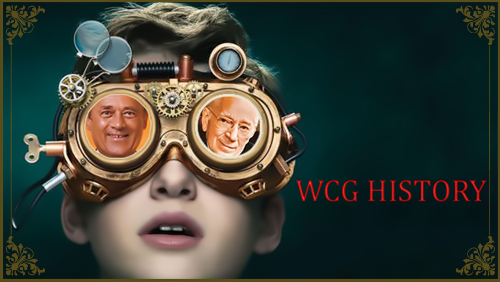The conservatives and neo-conservatives are rushing to establish a connection between “God and Country”. While there have always been some who tried to do this, there is a more intense desire, it seems, to “prove” that this country was based on Christian principles, in spite of the statement of John Adams that:
“As the government of the United States is not in any sense founded on the Christian religion–as it has itself no character of enmity against the law, religion, or tranquility of Musselmen…”
There is yet the argument that somehow this government is directly founded on Christian principles. Madison, however, saw that in Christianity or in any religion, trying to govern by the “truth of God” was near impossible. As he wrote in “The Federalist”:
“When the Almighty himself condescends to address mankind in their own language, his meaning, luminous as it must be, is rendered dim and doubtful by the cloudy medium through which it is communicated”.
The problem lay in translation and interpretation, as Jefferson commented in a letter to a friend:
“Differences in opinion is advantageous in religion. The several sects perform the office of censor morum over each other”.
It is not that the founders especially believed in Christianity, or in any other religion, as a direct authority for government, but that they saw religion as an agent by which power could be equally divided in the name of conscience. This need to maintain a “balance of power” among factions in government became recognized as the “Madisonian problem” as Madison agonized over in “Federalist #10′:
“The influence of factious leaders may kindle a flame within their particular states, but will be unable to spread a general conflagration through the other states: a religious sect may degenerate into a political faction in a part of the confederacy; but the variety of sects dispersed over the entire face of it, must secure the national councils against any danger from that source: a rage for paper money, for an abolition of debts, for an equal division of property, or for any other improper or wicked project”.
We can conclude that Madison certainly never intended for any religion to represent the elimination of property rights. In fact, we can see from both Madison and Jefferson that both men intended that no “national council” could ever seek to overturn the property rights of people in the several states.
The “separation of church and state” which many claim is represented in the First Amendment, designed, according to Madison’s statement, to maintain property rights and discourage national power to override those rights. Both Madison and Jefferson were less involved with the ‘truth” of religion that with its ability to confound and separate people to the point they could not create “conflagrations” of power by using “paper money, abolition of debts, and for an equal division of property”, all of which we seem to have developed a taste for in recent times, not to mention the outright use of “paper money” with no Constitutional authorization.
The founders understood quite well that no person, especially themselves, had the knowledge or authority to speak for God, but they also intended that the government could, in no fashion, interfere with the free exercise of religion, not because they wished the government to be subject to God, but because they knew that no man could ever prove himself to be a representative of God.
As Madison wrote in the famous “Memorial And Remonstrance”:
“The religion then, of every man, must be left to the conviction and conscience of every man: and it is the right of every man to exercise it as these may dictate”.
While men may be subject to God, the state could never, in any sense, speak for God. None of the statements above show that the founders, in any way, intended for the state to claim power over any person’s conscience. They understood quite clearly that no belief in God could ever be reduced to state-endorsed rules.
While the right to worship God was permitted, it was intended as a counter-measure to the power of the state, but never to be subject to controls other than those chosen by the people themselves as individuals. More than the state, and less than the God in which they believed. Mankind, in the eyes of the founders, consisted of more than rules and laws. Mankind was made in the image of something which he could not define, but had the right to seek and desire.


This is a fantastic article. Not something you would hear in church.